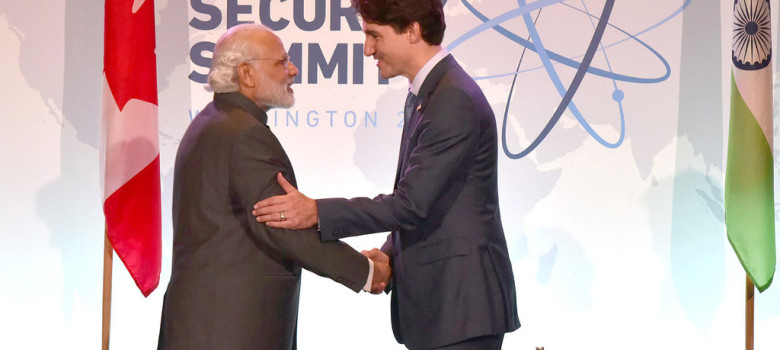The government’s public consultation on the Trans Pacific Partnership (TPP) has stopped in Vancouver, Calgary, and Montreal in recent weeks as a growing number of people speak out on the agreement. Tens of thousands have also written to the government on the issue with some beginning to consider trade strategy alternatives.
My weekly technology law column (Toronto Star version, homepage version) argues that the interest in other trade options stems from three developments. First, the TPP may not have sufficient support to take effect since under the terms of agreement both Japan and the United States must be among the ratifying countries. Implementation has been delayed in Japan where politicians fear a political backlash and seems increasingly unlikely in the U.S., where the remaining presidential candidates have tried to outdo one another in their opposition to the deal.
Both Donald Trump and Bernie Sanders have been outspoken critics of the TPP from start of their campaigns. Meanwhile, Hillary Clinton has shifted her position from supporter to critic, recently unequivocally stating that “I oppose the TPP agreement and that means before and after the election.” Some TPP supporters have held out hope that the TPP could be passed during the “lame duck” session in Congress that occurs immediately after the U.S. election, but with all presidential candidates campaigning against it, finding the necessary political support will be exceptionally difficult.
Second, economic analysis of the TPP suggests that there are few benefits for Canada. For example, a recent C.D. Howe study found that the Canadian gains may be very modest, with some gains offset by losses on issues such as copyright and an outflow of royalties. Given the limited effect of staying out (the study describes the initial impact as “negligible”), some have suggested that killing the agreement might be a good thing for the country.
The C.D. Howe study, which is consistent with several other reports that found that TPP benefits to Canada are among the lowest of the 12 countries, should not come as a surprise. Canada already has free trade deals with several key agreement partners, including the U.S., Mexico, Chile, and Peru. Moreover, some Canadian business sectors have told the government they would be better off removing inter-provincial trade barriers before working to open markets like Vietnam and Malaysia.
Third, at hearings across Canada, there has been consistent concern with the TPP’s potential impact on many other issues, including health care costs, copyright, digital rights, labour rights, and environmental protections (I was invited as a witness earlier this month at a hearing in Ottawa). Some of these issues may be more difficult to quantify, but the growing chorus of criticism points to risks popping up throughout the fine print of the agreement.
If the TPP dies – or Canada decides not to ratify – what might a “Plan B” look like?
Canada already has an alternate blueprint for a trade strategy to open up key markets throughout Asia. By the government’s own admission, the Canada – EU Trade Agreement offers a better investor-state dispute settlement system than the TPP, while the Canada – South Korea free trade agreement, which was concluded in 2014, eliminates tariffs without requiring an overhaul of Canadian or South Korean laws. There are criticisms of both of those deals, but they offer better models than the TPP.
The target markets are easy to identify. The Canadian government has begun to rethink its engagement with China and has already made some progress on trade negotiations with Japan and India, two of the most important Asian markets. Concluding those deals will not be easy, but they do point to the potential for expanding Canada’s trade presence in Asia without the need for the TPP.
Chrystia Freeland, Canada’s International Trade minister, has been placed in a tough position, inheriting an increasingly unpopular agreement her government did not negotiate. As the TPP consultation continues – a public town hall is planned for Toronto next month – a Plan B focused on opening markets through bi-lateral trade deals that better represent Canadian interests may emerge as the preferred alternative trade strategy.








When listing the negative effects of the TPP, I have to wonder why a few of the most obvious and pernicious results – labour and money leaving the country – seem to get left out.
I’ll give you a Plan “B” for this thing – KILL IT and never talk about it again!
Bill Rees, human ecologist, ecological economist, and University of British Columbia Professor Emeritus, offers a Plan C – Degrowth — a well-planned, orderly, cooperative descent toward a socially just, sustainability for all. The steady-state solution is not new; it’s been around for at least 150 years. So why hasn’t it penetrated the public policy domain? In Rees’ view, humans hate change so much that political and corporate propagandists have had little difficulty in socially engineering us to ignore reality. It appears we have entered into an Age of Endarkenment in which truth no longer matters much.
We are left with two options: Business as usual, which ends in societal collapse, OR Degrowth, a well-planned, orderly, cooperative descent toward a socially just, sustainability for all.
A recent study, funded by NASA, concluded: “Collapse can be avoided and population can reach equilibrium if the per capita rate of depletion of nature is reduced to a sustainable level, and if resources are distributed in a reasonably equitable fashion.”
Plan B sounds to me very much like a business-as-usual option. Those who push for it, must, at the very least, do the math and reassure us that the per capita rate of depletion of nature will be reduced to a sustainable level, and resources will be distributed in a reasonably equitable fashion.” Otherwise, forget it.
Source: “Bill Rees’ Degrowth Vision – Planned descent toward socially just sustainability for all: Part 4” — shortlink: http://wp.me/pO0No-371
Totally agree with the author
Pingback: Michael Geist and the truth about TPP – CC Kenya Blog